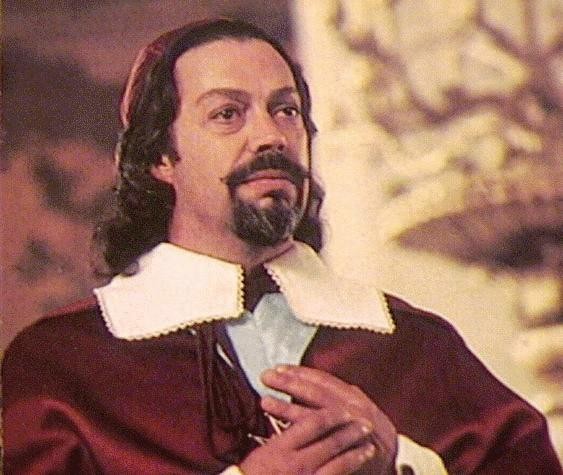

The agreement would have prohibited French interference in Germany. When, in 1630, French diplomats in Regensburg agreed to make peace with Spain, Richelieu refused to support them. Spain was meanwhile seeking papal approval for a universal monarchy. Had the imperial armies dominated this region, France's very existence would have been threatened by Habsburg encirclement. At that time northern Italy was a major strategic item in Europe's balance of powers, serving as a link between the Habsburgs in the Empire and in Spain. In the meantime, France and Spain remained hostile due to Spain's ambitions in northern Italy. Richelieu, alarmed by Ferdinand's growing influence, incited Sweden to intervene, providing money. In 1629, the Emperor Ferdinand II subjugated many of his Protestant opponents in Germany. This peace quickly broke down after tensions due to the War of Mantuan Succession. However, in May 1626, when war costs had almost ruined France, king and cardinal made peace with Spain via the Treaty of Monçon. In 1625 Richelieu also sent money to Ernst von Mansfeld, a famous mercenary general operating in Germany in English service. That same year, a military expedition, secretly financed by France and commanded by Marquis de Coeuvres, started an action with the intention of liberating the Valtelline from Spanish occupation. Luckily for him, Richelieu was a bon français, just like the king, who had already decided to subsidize the Dutch to fight against the Spanish via the Treaty of Compiègne in June 1624, prior to Richelieu's appointment to Prime minister in August. He considered the Dutch Republic as one of France's most important allies, for it bordered directly with the Spanish Netherlands and was right in the middle of the Eighty Years War with Spain at that time. France was not openly at war with the Habsburgs, who ruled Spain and the Holy Roman Empire, so subsidies and aid were provided secretly to their adversaries. Devious and brilliant, he increased the power of the Bourbon dynasty and established orderly government in France.Before Richelieu's ascent to power, most of Europe had become enmeshed in the Thirty Years' War (1618–1648). In foreign policy, he sought to weaken Habsburg control of Europe and involved France in the Thirty Years' War. He established royal absolutism in France by suppressing the political power of the Huguenots and reducing the influence of the nobles. Named a cardinal in 1622, he served as chief minister from 1624 and became the controlling influence in France's policies. He became an adviser to Marie de Médicis in 1616 and later councillor to her son, Louis XIII. In 1614 he was elected a deputy of the clergy in the Estates-General, where he was noted as a conciliatory force. As the first bishop in France to implement reforms decreed by the Council of Trent, he brought order to a diocese ruined by the Wars of Religion. Born to a minor noble family, he was ordained a priest in 1607 and became bishop of Luçon. 4, 1642, Paris French statesman and chief minister to Louis XIII. 9, 1585, Richelieu, Poitou, France died Dec. He destroyed the political power of the Huguenots, and is thought of as a typical example of someone who uses his influence with a ruler to achieve great power (1585-1642) Related Terms Armand-Jean du Plessis cardinal and duke de Richelieu born Sept. Definition of cardinal richelieu in English English dictionary a French cardinal (=a Roman Catholic priest of the highest rank) who was also the chief minister of France and had a lot of influence with King Louis XIII.


 0 kommentar(er)
0 kommentar(er)
